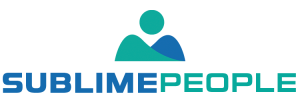If you’ve got a job interview coming up, you know how stressful it can be to prepare for all the unknowns. There are always questions about what to wear when to be there and how best to present yourself. It’s already an intimidating experience, so why not remove some of that stress by understanding all 13 steps of the typical interview process?
By familiarizing yourself with what happens before, during, and after your in-person meeting — as well as any activities that may follow — you’ll have a better handle on what is required and expected from both sides. So don’t let anxiety get in the way of taking full advantage of this opportunity; read on to learn more about each step along the path toward getting hired for your dream job!
In this Article:
What is the interview process?
The interview process for hiring new employees usually involves the following steps: writing a job description, posting a job, scheduling interviews, conducting preliminary interviews, conducting in-person interviews, and making a decision.
Steps in the interview process?
The interview process typically involves several steps. Each step serves an important purpose in helping interviewers identify qualified job candidates who possess the right skills and qualifications to excel in the role. By following these interview process steps effectively and efficiently, employers can make the best hiring decisions and bring in the right people to fill open positions.
1. Job Description Review
Before any interview takes place, employers should review the job description in detail to ensure they’re looking for qualified candidates who meet all of their requirements. This also helps interviewers prepare interview questions that will give them the best possible insight into a candidate.
2. Resume Review
During the interview process, employers review an applicant’s resume and assess their qualifications for the job opening. By reviewing a candidate’s work history, education, skillset, accomplishments, and other qualifications in detail, interviewers can get a better sense of a candidate’s fit for the position.
3. Phone screen interviews
After an employer has identified qualified candidates, they should conduct phone interviews or Video interviews to further assess whether the interviewee is a good fit for the role and company. Screening interviews serve as an initial evaluation of a job candidate and allow interviewers to quickly weed out applicants who don’t meet the job requirements.
4. First interview
Your first in-person interview will probably be one-on-one with a potential employer. They’ll ask you questions about your qualifications, skills, work history, and availability. The company is looking for the best candidate possible for the position, so this is your chance to show the hiring team why you’re perfect for the job offer! Interviewing candidates allows interviewers to get a better feel for the person and gauge their fit with the team, company culture, and job duties.
5. Second Interview
A second interview is usually a follow-up one-on-one meeting with the first interviewer, but it could also be an all-day event where you meet several fellow team members from the company. This might include management, staff members, executives, and other employees. If you’ve been asked to come in for a second interview, likely, you’re already a top contender for the job.
6. Third Interview
Even if you aced the first two interviews, there’s still a chance you’ll have to participate in more. A third interview is common and usually includes meeting the hiring manager plus other potential co-workers.
7. Interview Questions
As interviewers have narrowed down the pool of candidates, they should create questions that evaluate the job candidate’s skills and experience regarding the job requirement and company need. This can include asking a mix of open-ended, situational, personality-based, and technical questions during the job interviews.
8. Final Interview
A final interview is the last step of the interview process and serves as a final evaluation for both parties. Interviewers should assess whether the job candidate meets all of their qualifications, while job seekers should be sure that they are comfortable with the company culture and job duties.
9. Review Interview Questions and Answers
A critical step in the interview process is to review a candidate’s interview questions and answers. This enables interviewers to thoroughly evaluate an applicant’s qualifications, experience, and job knowledge. It also helps interviewers determine if the person will be a good fit for the team and company culture.
10. Following Up
Once interviewers have assessed the job interview process and reviewed the interview questions and answers, they should follow up with qualified candidates. This involves confirming that the candidate is still interested in the position and setting a timeline for when they expect to hear back from the company regarding their job offer.
11. Background Check
Before making a job offer, interviewers should conduct a background check on the interviewee. This includes verifying their work eligibility, education, and any other relevant qualifications. A thorough background check will help employers find the right person for the job.
12. Hiring Decision
After completing the hiring process steps, interviewers may make an official hiring decision. This involves extending a job offer to the chosen candidate and negotiating salary, benefits, and other details.
13. Job Offer
Once interviewers have made their hiring decision, they should extend the job offer to the interviewee contingent on a successful background check. The job offer letter should include information about the salary, vacation days, company benefits, and work schedule.
What interview tips should job seekers consider?
Researching the company
Before each interview, job seekers should make sure to research the company in detail. The background check includes looking into the company’s history and values as well as its mission statement and any recent news stories about them.
Preparing for questions
They should also take time to prepare answers to common interview questions such as “What are your strengths and weaknesses?” and “Tell me about a time when you faced a difficult challenge.”
Dressing for interview
Job seekers should also dress appropriately for the interview and make sure to arrive a few minutes early. This will give them time to relax, review notes, and get comfortable before the interview begins.
Interviewing team members
During the job interview process, job seekers should ask questions about the company and its team members to get an idea of what it’s like to work there. This can give the hiring manager
an idea of how comfortable they would be in the role.
Making the best decision
Once interviewers have completed their interview process and identified the qualified job candidates, they should take some time to review each candidate’s qualifications and make sure to discuss their options with other members of the interview team and senior management before making a hiring decision.
Asking questions
During the interview, job seekers should make sure to ask thoughtful questions about the position and company. This helps interviewers get a better sense of an applicant’s interest in the role and their understanding of the company.
Conclusion
The interview process can be intimidating, but following these steps and tips can help job seekers make the most of their interview experience and put their best foot forward. With the right preparation and attitude, interviewers can make sure they’re ready to present themselves as the right person for the job.


